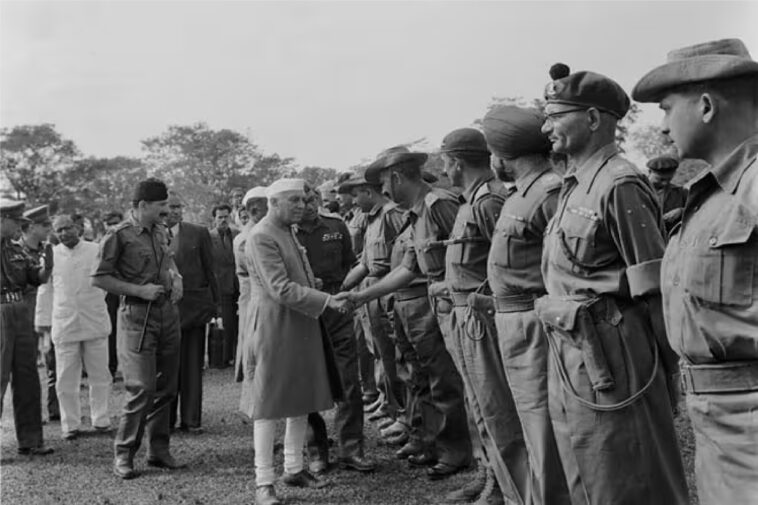It was 1963. Jawaharlal Nehru, India’s first prime minister, faced his toughest test after 16 years of dominance and impunity: a motion of no confidence in the Lok Sabha. The proposal, introduced by Congress rebel Acharya JB Kripalani, was the subject of a four-day, 21-hour debate.
In Indian history, that was the country’s first no-confidence motion. Since then, India has experienced 27 no-confidence motions.
Nearly 60 years after the first one, a motion of no confidence is being brought against another government at the Centre. A no-confidence resolution has been filed against the Narendra Modi-led NDA government by Nehru’s own party, the Congress, which is a member of the Opposition group INDIA.
But what is a motion of no confidence? To put it briefly, it enables the Opposition to challenge the government’s majority on the Lok Sabha floor, and if the motion is approved, the current administration must step down.
ALSO READ : 10 Amazing Benefits of Giloy: The Ayurvedic Root of Immortality
The Lok Sabha Speaker must approve the proposal before the Opposition and Treasury benches can debate it. During the discussion, the lawmakers in favour of the motion call attention to the flaws of the government, and the treasury benches address the issues brought up.
Let’s examine the first no-confidence motion’s history to see how and why it was proposed.
THE BIG TEST OF NEHRU
The lowest point of Jawaharlal Nehru’s political career came during the boundary dispute with China, which sparked a war and an embarrassing defeat for India in 1962. He suffered some embarrassment as a result in the international community, and his domestic political power was reduced. The Congress took the brunt of Nehru’s damaged reputation as the party lost a number of significant by-elections.
Minoo Masani, Acharya JB Kripalani, and Ram Manohar Lohia were able to enter Parliament as a result of these defeats. They quickly did something that was inconceivable at one point: they challenged Nehru and his administration.
On August 19, 1963, Acharya JB Kripalani introduced a motion of no confidence in the Jawaharlal Nehru administration. At that time, a no-confidence resolution may be introduced with the backing of 30 MPs, according to the Lok Sabha Rules. 50 MPs must now back the measure.
A 21 hours, 33 minute long debate
Kripalani, who proposed the resolution, cited the Chinese aggression and accused the administration of being negligent despite consistently asserting that the nation’s military forces were powerful enough to repel any aggression.
According to Kripalani’s statement, “military decisions were taken in the capital without consulting field officers in NEFA (North East Frontier Agency),” as quoted in GC Malhotra’s book “Cabinet Responsibility to Legislature: Motions of Confidence and No-Confidence in Lok Sabha and State Legislatures.” There was no need to wait for talks with the Chinese, and India needed to be mentally and physically ready to expel the aggressor.
Kripalani attempted to corner Nehru on the Panchsheel pact between India and China, which he vehemently opposed. Kripalani referred to it as “nonsense” and urged cutting off diplomatic ties with China.
On April 29, 1954, India and China signed the Panchsheel Agreement, widely known as the Five Principles of Peaceful Coexistence. The five guiding principles were non-aggression, non-interference in one another’s internal affairs, equality and mutual benefit, and peaceful cohabitation. They also included respect for each other’s territorial integrity and sovereignty. However, it disintegrated following the war in 1962.
There were 40 MPs present during the four-day debate. Jawaharlal Nehru addressed at the conclusion on August 22, 1963, claiming that the motion was “a little unreal” and that the opposition parties were not in a position to overthrow the government.
Nehru’s accusation in opposition
Jawaharlal Nehru responded by saying, “A no-confidence motion should or does aim at ousting the party in power and putting a new party in its place. In this case, it is obvious that no such expectation or hope existed. Thus, the debate was somewhat fictitious even if it was fascinating in many ways and, in my opinion, profitable as well. I’ve personally welcomed both the motion and the discussion. I have thought that it might be beneficial to conduct these kinds of exams on a regular basis.
Regarding their criticism of his administration, Nehru specifically highlighted Acharya Kripalani, MR Masani, and Ram Manohar Lohia.
“It’s possible that Acharya Kripalani, Shri MR Masani, and Dr. Lohia were still a little overjoyed about their victories in the by-elections and thought they could launch a frontal attack on this government and everyone who is a part of it. I listened to their speeches with great interest and care. Dr. Lohia did me the honour of mentioning me numerous times. I don’t want to debate about myself because doing so would be improper and unseemly for me. However, that did bring the discussion to a particularly low level of the marketplace, according to Nehru.
Nehru responded to Kripalani’s critique of Panchsheel by arguing that the pact could not be labelled “nonsense” only because China violated it.
“I am submitting that the Panchsheel principle should be established. Either side of the implementation may be incorrect. That can be investigated. But unless two nations are at war with one another, this concept must exist between them, according to Nehru. It is also a principle that is just and civilised.
Acharya Kripalani has stated that we should sever diplomatic connections with China, and Nehru responded to this by saying, “Now, Acharya Kripalani has indicated that we should do so. Why don’t we declare war, he questioned? All I can say is that doing so would be extremely foolish on our part. It might be a brave move. However, in our opinion, doing so would be foolish because it would not benefit us in any way and could instead work against us. Nothing prevents us from bolstering our defences. Regardless of whether it is Pakistan or China, we are doing our utmost to achieve this while also maintaining an open door policy. For a peaceful resolution, so long as it is honourable and consistent with our philosophy.





